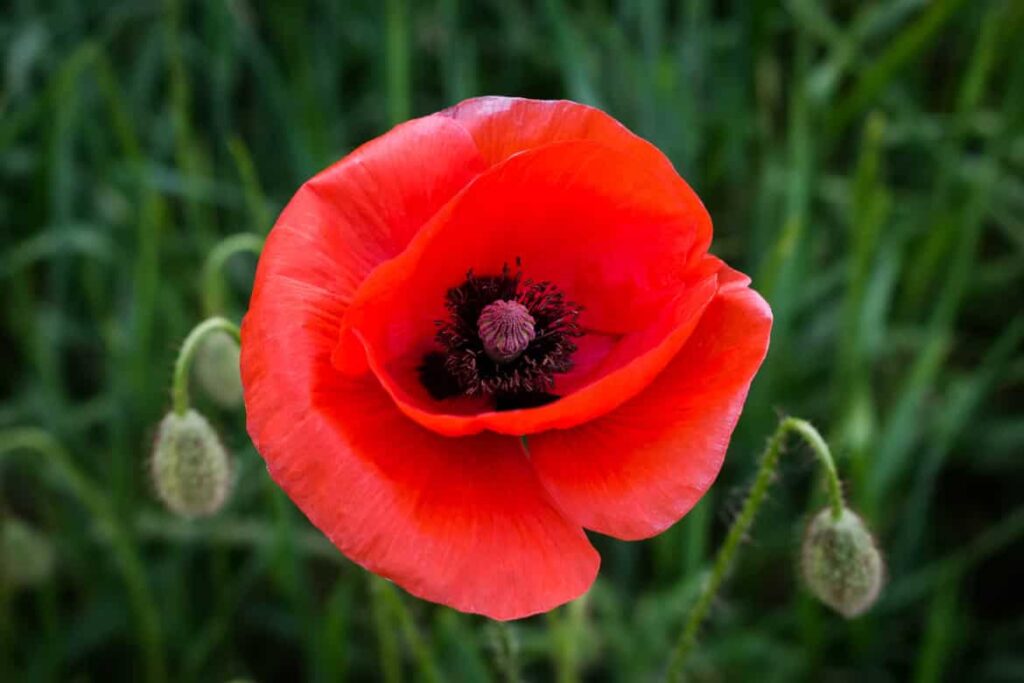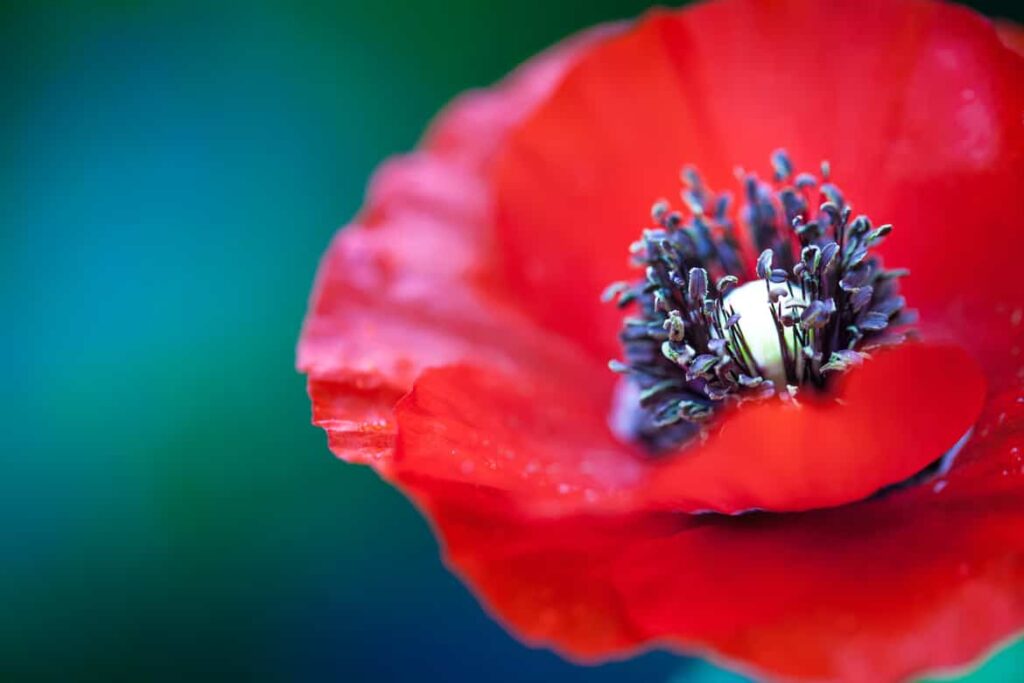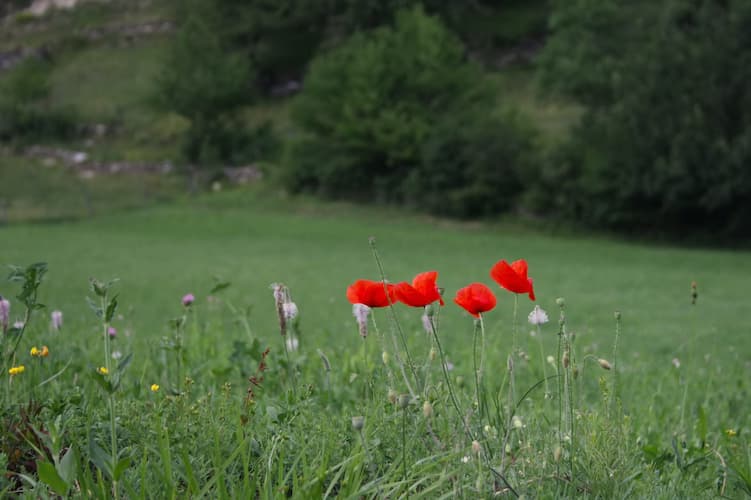Amapola Flower: Care, Benefits, Meaning, Features
The Latin name of the Amapola flower is Papaveraceae.
This flower, which is a plant species from the poppy family, grows in temperate climates and has more than 500 species.
Poppy flowers (Amapola flower), which are very difficult to care for, are white, pink, red flowers that form on their own in the countryside.
The color of Amapola flower is red. The red Amapola flower are a flower that gives color to the green fields.
The Poppy flower, which can be found in many places throughout our country, grows almost everywhere.
But some cities stand out among these places.
What Will We Learn?
What Is Amapola Flower?
The Poppy flower is a beautiful type of flower that grows on its own in the fields and countryside.
It is given this beautiful name because of its thin red leaves resembling tulle and its delicate stem.
It is mostly seen in bean fields. Poppy flowers prefer arid soils.

How To Care For Amapola Flowers?
The Amapola flower is a very delicate wildflower.
Caring for this flower at home is more difficult than other flowers.
People who want to grow Poppy flowers need to pay attention to many issues.
The care of the Poppy flower should be paid attention to the following points first:
- Poppy flowers should be watered close to the ground, not from the leaves and upper part. Otherwise, it can easily shed its leaves.
- Ideal weather conditions should be provided as very hot or slightly cold weather can damage the flower.
- Fertilizing can damage the flower. Natural soil will suffice for the flower.
- Growing the Amapola flower in the home garden or on the balcony is better than growing it indoors.
- Because the leaves of the Poppy flower are delicate, the stem and leaves of the Poppy flowers should not be touched.
How To Plant Amapola Flowers?
The seeds, which are the reproductive source of this sensitive plant, are grown even in pots, adapting to all kinds of soil and climate conditions.
But every plant seed, including the Poppy flower seed, needs sunlight to thrive.
This seed, which is sown between March and October, should be planted in the ground close to the upper surface before reaching the depths of the soil.
However, the soil structure should be removed from large stones and grass.
Hoeing is a good idea to aerate the soil and helps keep the seed growing well.
Giving life water is also very important. Watering should be done weekly.
Removing the grass that grows above the soil over time helps speed up seed development.
Branched poppies should be grown without exposure to bad weather conditions.
How To Propagate Amapola Flower?
Poppy flowers are propagated by seed.
The Poppy flower is located on a thin delicate long stem.
It blooms by forming buds in the green sheath, seed capsules appear due to the shedding of the flower leaves.
These capsules are barrel-shaped and multi-seeded.
After drying, coffee and black seeds form inside.

Is It Possible to Cultivate Amapola Flowers at Home?
Yes it can be done. However, it should not be forgotten that it is difficult to care for other flowers.
Meaning Of Amapola Flower
It can be said that the Amapola flower has a very sad meaning.
The Poppy flower is known as the flower of lovers who cannot meet.
Amapola Flower Properties
The length of the flower varies between 30-60 centimeters.
The leaves of the flower are hairy and hard.
The green-bodied flower blooms between April and August.
The flowers are mostly black, rarely red, honey-giving and 4-petaled.
The seeds, which are dark gray like kidneys, mature between August and September.
The seeds contain white milk.
There should be a temperate climate for the reproduction of Poppy flowers.
Strained soils are important for Poppy flowers and it is essential for them to see the sun.
Poppy flowers are a type of flower that loves sunlight.
Amapola Flower Benefits
This flower has many benefits. It is usually consumed in syrup form.
It can be used as a sleep regulator, sedative and relaxing.
However, it is known to be good for some diseases.
Chest and throat softener, bronchitis, asthma and is very good for curing persistent coughs.
Amapola flower, which is used for skin beauty, is used for hair loss.
This flower, which has a positive effect for diarrhea, is also used as a pain reliever.
If there is a stomach disease, the disease in the stomach is eliminated when it is boiled and drunk with the advice of a doctor.

Other Health Benefits
Other benefits of the flower are listed below:
- It Can Help You With Skin Problems
The antioxidants and high levels of linoleic acid in the flower can be very effective on skin health.
Pastes made using milk from its seeds can be used to moisturize the skin and make it look healthy and bright.
By adding a few drops of lemon juice to the mixture, it can be used for itching, eczema, burns or any skin inflammation problem.
- It can relieve your pain.
One of the most researched effects of this flower is its pain-relieving properties.
One of the active ingredients in it is morphine, one of the most effective pain relievers in hospitals.
Consuming its seeds or drinking its tea can relieve mild aches, headaches and speed up recovery.
- It can strengthen your immunity
Studies reveal that adequate zinc intake is necessary for the immune system to be strong.
Zinc is found in high amounts in Poppy seeds and increases the production of white blood cells, increasing the body’s resistance to foreign matter.
- May be good for heart health
The iron contained in the flower is the essential mineral for the production of red blood cells.
By increasing your iron intake, you can improve blood circulation and increase oxygen carried to important organs of the body.
In this way, you can reduce problems such as anemia, low energy, fatigue and accelerate the recovery period.
- May be a healthy food for bones
Consuming Poppy grass reduces the risk of osteoporosis and helps prevent other bone-related problems.
- It can help you with healthy and vibrant hair
This herb and its seeds contain unsaturated fatty acids and minerals such as calcium, zinc and magnesium.
All these nutrients help shiny, healthy and long hair.
In addition, to treat dandruff hair, the leaves are boiled and applied to the hair.
It is known that if this process is done regularly, the hair is completely protected from dandruff.
It is very important to consult your doctor before using the herb for medicinal purposes.
Poppies Flowers And Their Meanings
Poppies flowers play a significant role in emotional expression and gifting, symbolizing various emotions with their vibrant colors and unique meanings. In this article, we will delve into the emotional significance of poppies, exploring the meanings they carry in the context of emotional expression and the art of gift-giving.
1. Love and Passion: Red Poppies
- Red poppies symbolize love and passion, making them an ideal choice to express intense romantic emotions. Offering someone red poppies is a heartfelt way to convey deep affection.
2. Loyalty and Devotion: White Poppies
- White poppies represent innocence, loyalty, and devotion. Choosing white poppies to express your commitment and loyalty to a special person can convey a sense of purity and dedication.
3. Peace and Tranquility: Blue Poppies
- Blue poppies are symbolic of calmness, peace, and tranquility. Gifting these flowers expresses a desire to provide a peaceful atmosphere for your loved ones.
4. Hope and Rebirth: Yellow Poppies
- Yellow poppies symbolize hope and the promise of a new beginning. Offering yellow poppies can be a gesture of encouragement and optimism during challenging times.
5. Respect and Gratitude: Purple Poppies
- Purple poppies convey respect and gratitude. Gifting these flowers is a sincere way to express appreciation to someone who has made a positive impact on your life.
6. Memory and Nostalgia: Daisy-Patterned Poppies
- Poppies with daisy patterns evoke nostalgia and memories. Choosing these flowers can serve as a reminder of a special moment or a tribute to cherished memories.
7. Friendship and Unity: Orange Poppies
- Orange poppies symbolize friendship, energy, and unity. Sending orange poppies to close friends or colleagues is a gesture of camaraderie and shared experiences.
8. Natural Beauty and Purity: Green Poppies
- Green poppies represent natural beauty and purity. Including green poppies in a floral arrangement for someone who appreciates nature can symbolize freshness and simplicity.
Our article about Blue Lotus tea will also attract your attention.
